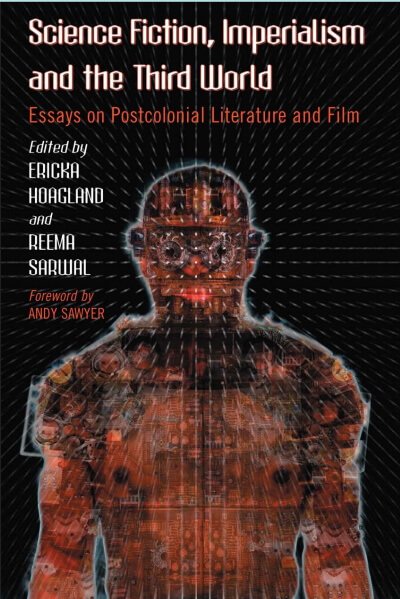📖Carti PDF🎊 online gratis:🌸 eBook- Science Fiction, Imperialism and the Third World book.PDF📖🌟
Though science fiction is often thought of as a Western phenomenon, the genre has long had a foothold in countries as perse as India and Mexico. These sixteen critical essays examine both the role of science fiction in the third world and the role of the third world in science fiction. Topics covered include science fiction in Bengal, the genre’s portrayal of Native Americans, Mexican cyberpunk fiction, and the undercurrents of colonialism and Empire in traditional science fiction. The intersections of science fiction theory and postcolonial theory are explored, as well as science fiction’s contesting of imperialism and how the third world uses the genre to recreate itself.
“Sf,” writes Uppinder Mehan in an essay on Indian science fiction pub- lished in Foundation in 1998, “is as Western as Coca-Cola, big cars and com- puters” (54). He then, however, points out that science fiction in several of the languages of the Indian sub-continent has been published since the early years of the twentieth century. Some years later, Mehan, with Canadian- Caribbean writer Nalo Hopkinson, edited So Long Been Dreaming, an anthol- ogy of explicitly “postcolonial” science fiction and fantasy. In her introduction (as at least one essay in this book reminds us) Hopkinson noted that while heading off into the galaxy to colonize new worlds is often a theme of science fiction “for many of us that’s not a thrilling adventure story; it’s non fiction” (7). However (as again we are reminded), the tools of sf, its speculative drive and its ability to subvert language and situation, are among the most powerful weapons available to those who want to “[make] it possible to think about new ways of doing things” (9). Far too many arguments about what sf is and does center upon describing an origin for the form in sources such as Shelley’s Frankenstein, Wells’s “sci- entific romances,” More’s Utopia or simply the identification in Hugo Gerns- back’s first issue of Amazing Stories in April 1926 of the “Jules Verne, H.G. Wells and Edgar Allan Poe type of story—a charming romance intermingled with scientific fact and prophetic vision” as scientifiction (3). A more creative approach, perhaps, is to consider whether all cultures, at all times, have reacted to the idea that change is fueled by both actual science and technology and the very speculation that sciences and technologies do change the world. Such an approach, perhaps, allows more voices to be heard and a more open (and critical) examination of the nature of such change, and of what we mean by such slippery concepts as “change,” “difference,” and “otherness.”
Recomandăm: Ochiul Golemului #2- Jonathan Stroud
CItește și descarcă eBook- Science Fiction, Imperialism and the Third World book.PDF
Disclaimer: ( Please Read the Complete Disclaimer Then) All information/ material available on this website or the links handed on the point are for educational and instructional purposes only. We hold no responsibility for any profit, loss, or damage caused by or due to any information available on the point, either directly or laterally. The content is meant for individual and noncommercial uses only. © 2023 "ToolBooks" Citește și descarcă cărți online gratis! | All Rights Reserved










